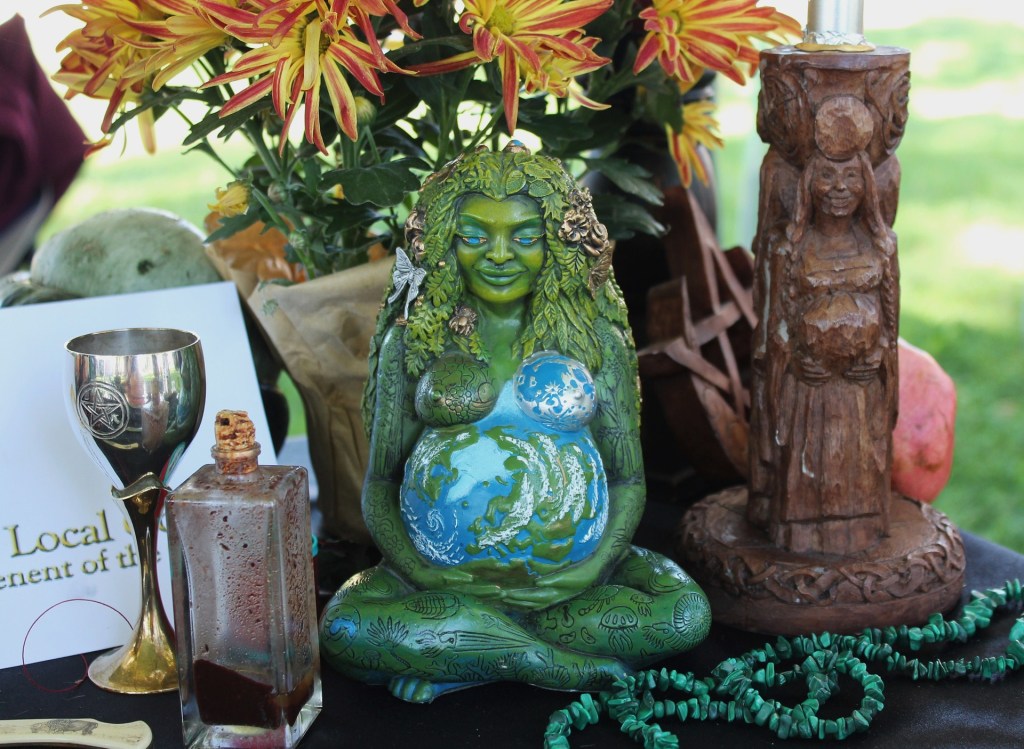
So I’m working on my journal for Initiates Magical Practice, and I’m realizing something very very odd.
I have never, in my life, written magic down with the intent that anyone else would ever read it, let alone look at it and analyze it.
One of the very first things I learned, back when I was a baby witch and a seeker and before druidry had even entered my radar, was the Witches Pyramid. Jason Mankey discusses its history here – but suffice to say it predates modern witchcraft significantly. It’s an adage repeated over and over to magical practitioners and students of the occult as the foundation of how to do magic:
- To Know
- To Dare
- To Will
- To Be Silent
(Or, as my first HPS used to say; to know, to will, to dare, and to shut the fuck up.)
I don’t do a ton of magic, and what I do is usually spirit work or energy work, though I have branched out into candle magic, talismans and amulets, and spell jars for my Magical Practice course. Over the last three months I think I’ve done more magic than I’ve done in the last three years combined.
This is helped in large part by John Beckett’s excellent Operative Magic course, that is ongoing right now. John is a good friend and co-religionist, and I’m pleased to be able to support his work, as well as to learn from him. And I have learned a lot!
But now I’ve got a magical journal. I wrote my trance journal and submitted the whole thing for both Trance 1 for Priests and Initiate Trance 1. That was scary, but not really unsettling. It was soul-baring in a way, to have my intimate trance experiences put on display for someone else, but that even was different than how I’m working with magic now. I’m happy to share that journal with CTP students who are struggling with Trance because it shows a great deal about the struggles I had – it’s private, but it’s not secret.
I keep backups of all of my journals on Google Drive (because I am both a calligrapher and a techno-druid). My journals are all in text format on the computer because I can’t write as fast as I can think, and I get much closer as a typist – and because as a calligrapher I’m always too angry with how my journals LOOK to really be good at handwriting them. That’s why I’ve always been a blogger – if you’ve been around awhile, you’ve seen my journals from my dedicant work were all published here, as were my Liturgy Practicum 1 for Priests journals. Now I’ve shared that backup journal with three initiates that I’m hoping to work more closely with over the next several months, with the goal of seeing if I’d like them to be my initiators.
And I’m not just planning, executing, evaluating, and then perfecting my magical practice… I’m going to submit it to ADF and a reviewer, who is possibly someone I have never met, and quite possibly someone who has preconceived notions about me, is going to grade that journal and my experience of magical practice. That is a very strange feeling indeed. I can, of course, censor what I’m writing – or what I turn in at least. But I have to leave enough of the details so that someone who doesn’t know me in the slightest will believe that I actually did the working.
Which feels an awful lot like breaking the “and shut the fuck up” part of the pyramid. I know WHY they need to know that I can do magic – it’s part of being an initiate. And were I in a giant working group of other students and initiates, we could discuss and learn together over time and the folks initiating me would not need a journal to judge my work, but I’m not – my Initiate work is being done solo, and my learning is all self directed. I have a mentor (several of them), but this work is being done on my time and my schedule.
So someone has to know what I am and am not willing to do, and how I do the magic I have experience with. Then, at my ordeals, I will have to defend questions about those magical workings, especially about my magical ethics. In public!
I absolutely understand why this is necessary.
It still feels weird though.

